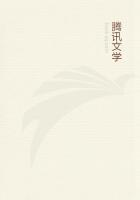I am smiling, tear-stained, smiling, As the sun glints on the crest Of the troubled wave, beguiling Shipwrecked Hope to its long rest.
I am parting, broken, parting, From a soul that I hold dear, And the music of whose beauty Fades a dead strain on my ear.
I am dying, sweetheart, dying, Drips life's gold through palsied hands, -=20See; the dead'ning Sun is sighing His last note in red'ning bands.
So I'm sighing, sinking, sighing, Flows life's river to the sea.
Death my throbbing heart is tying With the strings that ache for thee.
"Yes," I said, when he had finished."I shall have to admit that immediately suggests Higginson's poem and Cleopatra's name.But here, try this," and I threw an old copy of the Atlantic Monthly upon the table.Maitland opened it and laughed."This may be mere chance, Doc," he said, "but it is remarkable, none the less.See here!" He held the magazine toward me, and I read: "Cleopatra's Needle.The Historic Significance of Central Park's New Monument.
Some of the Difficulties that Attended its Transportation and Erection.By James Theodore Wright, Ph.D." I was dumfounded.
Things were indeed getting interesting.
"Magazines and newspapers," I said, "seem to be altogether too much in your line.We'll try a book this time.Here," and I pulled the first one that came to hand, "is a copy of Tennyson's Poems I fancy it will trouble you to find your reference in that." Maitland took it in silence, and, opening it at random, began to read.The result surprised him even more than it did me.He had chanced upon these verses from "A Dream of Fair Women":
"'We drank the Libyan Sun to sleep, and lit Lamps which outburn'd Canopus.0 my life In Egypt! 0 the dalliance and the wit, The flattery and the strife.
"'And the wild kiss when fresh from war's alarms, My Hercules, my Roman Antony, My mailed Bacchus leapt into my arms, Contented there to die!
"'And there he died! And when I heard my name Sigh'd forth with life, I would not brook my fear Of the other! With a worm I balked his fame.
What else was left? look here!'
"With that she tore her robe apart and half The polished argent of her breast to sight Laid bare.Thereto she pointed with a laugh, Showing the aspic's bite.""There is no doubt about that," I said, as he laid the book upon the table."I want to try this thing once more.Here is Pascal; if you can find any reference to the 'Serpent of the Nile' in that, you needn't go any farther, I shall be satisfied," and I passed the book to him.He turned the pages over in silence for half a minute, or so, and then said: "I guess this counts as a failure, - no, though, by Jove! Look here!" His face was of almost deathly pallor, and his finger trembled upon the passage it indicated as he held the book toward me.I glanced with some anxiety from his face to the book, and read, as nearly as I now can remember: "If Cleopatra's nose had been shorter, the entire face of the world would have been changed."It was some minutes before Maitland fully regained his composure, and during that time neither of us spoke."Well, Doc," he said at length, and his manner was decidedly grave, even for him:
"What do you make of it?" I didn't know what to make of it, and I admitted my ignorance with a frankness at which, considering my profession, I have often since had occasion to marvel.I told him that I could scarcely account for it on the ground of mere coincidence, and I called his attention to that part of "The Mystery of Marie Roget," where Poe figures out the mathematical likelihood of a certain combination of peculiarities of clothing being found to obtain in the case of two young women who were unknown to each other.If the finding of a single reference to Cleopatra had been a thing of so infrequent occurrence as to at once challenge Maitland's attention, what was to be said when, all of a sudden, her name, or some reference to her, seemed to stare at him from every page he read?
"'There is something in this more than natural, If philosophy could find it out,'"=20murmured Maitland, more to himself than to me."Come, what do you say?" and he turned abruptly to me with one of those searching looks so peculiar to him in moments of excitement."I see," I replied, "that you are determined I shall give my opinion now and here, without a moment's reflection.Very well; you have just quoted 'Hamlet'; I will do likewise:
"'There are more things in Heaven and Earth, Horatio, Than are dreamt of in your philosophy I'
"You seem in some strange way to be dominated by the shade of Cleopatra.Now, if I believed in metempsychosis, I should think you were Mark Antony brought down to date.There, with that present sober air of yours, you'd pass anywhere for such an anachronism.
But to be serious, and to give you advice which is positively bilious with gravity, I should say, investigate this thing fully; make a study of this ancient charmer.By the way, why not begin by going to see Davenport in Sardou's 'Cleopatra'? You have never seen her in it, have you?"In this way.I succeeded in getting him out of his depressed state.
We got into an argument concerning the merits of Miss Davenport's work.I know of nothing Maitland would sooner do than argue, and, if attacked on a subject upon which he feels strongly, he is, for the time being, totally oblivious of everything else.For this reason I trapped him into this argument.I abominate what is now known as "realism" just as much as he does, but you don't have much of an argument without some apparent difference of opinion, so, for the nonce, I became a realist of whom Zola himself would have been proud."Why, man," I said, "realism is truth.You certainly can't have any quarrel with that." I knew this would have the effect of a red rag flaunted in the face of a bull.















